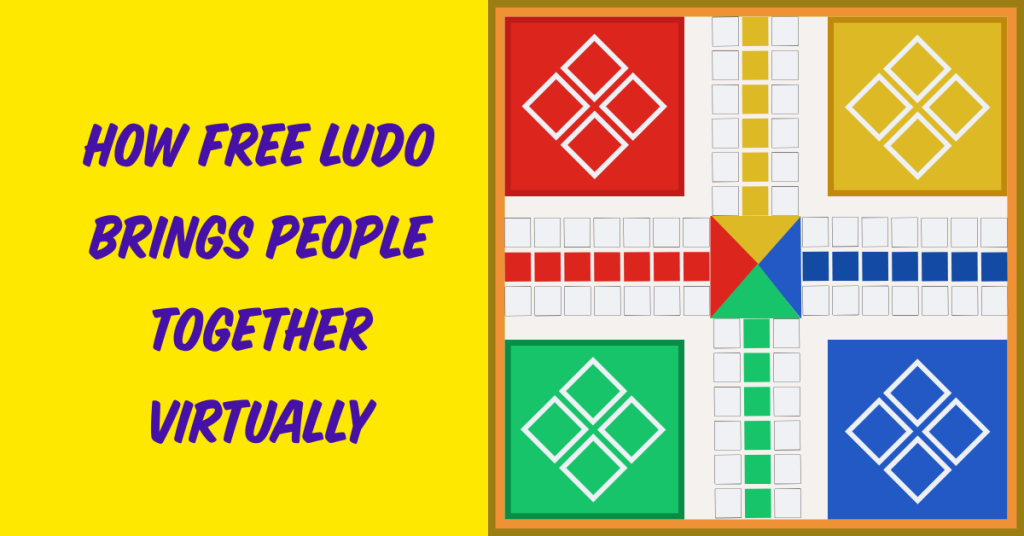In a world where digital connections have become an integral part of everyday life, games have emerged as a surprisingly powerful way to bond with others. Among these, Ludo stands out as a timeless favorite that has successfully transitioned into the virtual realm. Once limited to physical boards, this simple yet strategic game has now found new life on screens—bridging distances, fostering laughter, and bringing friends and families closer despite being miles apart.
The rise of best free online games has opened up opportunities for people to connect in ways that feel natural and enjoyable. Ludo, available on popular platforms like Zupee—which offers free games across various formats—has become a go-to choice for those seeking social interaction without boundaries. The joy of rolling dice, planning moves, and sharing light-hearted banter has transcended geography, allowing people from different corners of the world to unite over a common experience.
The Social Power of Virtual Play
The appeal of playing Ludo online lies not just in the game itself, but in the shared experience it creates. Virtual Ludo mirrors the face-to-face dynamics of its traditional counterpart—competition, collaboration, and conversation—all happening in real time. Whether it’s a family separated by cities or colleagues taking a break during work hours, online play provides a digital meeting ground that nurtures connection and relaxation.
Unlike social media, where interaction often feels superficial, playing together encourages active engagement. Every dice roll and move sparks reactions—laughter, excitement, surprise—that recreate the warmth of in-person gatherings. This interactive environment helps people maintain emotional bonds, even when physical meetups are rare.
Breaking Barriers and Building Communities
One of the most powerful aspects of free Ludo platforms is their inclusivity. Anyone with a smartphone and internet connection can join in, regardless of location or background. The simplicity of the game ensures that newcomers can participate easily, removing entry barriers that often exist in other online activities.
Players from different regions, cultures, and even time zones meet virtually on the same board. Over time, these encounters often evolve into friendships and communities that extend beyond the game itself. Through chat features, multiplayer modes, and ongoing tournaments, virtual Ludo becomes a platform for social discovery and cultural exchange.
Creating Meaningful Interactions in a Digital World
As our lives become increasingly digital, meaningful connections are harder to sustain. Yet, games like Ludo show that technology can also foster togetherness when designed thoughtfully. Instead of isolating players, the online version of this game encourages communication, strategy-sharing, and teamwork.
The casual nature of the game makes it an excellent setting for lighthearted conversations. Friends reconnect over shared memories, families bond during downtime, and even strangers find common ground through playful competition. The structure of Ludo—simple rules, quick turns, and constant engagement—keeps the atmosphere dynamic and inclusive.
In many ways, this digital format revives the essence of social play. It reminds people that connection doesn’t depend on proximity but on shared experiences and genuine interaction.
The Role of Platforms Like Zupee
Zupee, known for offering free games, has been instrumental in popularizing online Ludo by making it accessible, seamless, and community-driven. By integrating user-friendly interfaces and smooth gameplay, platforms like Zupee eliminate technical barriers that might otherwise hinder participation. Players can instantly compete with other players, making every session a mix of fun and interaction.
Zupee’s approach emphasizes entertainment and connection, allowing users to focus on enjoying the moment rather than navigating complex systems. This easy accessibility contributes to a sense of spontaneity—players can start a match anytime, anywhere, and instantly be part of a shared virtual experience.
Why Virtual Ludo Works So Well
The magic of online Ludo lies in its perfect balance between familiarity and freshness. The digital version retains the core appeal of the board game while introducing modern conveniences—instant matchmaking, in-app chat, and customizable themes—that enhance the social experience.
Moreover, the unpredictability of the dice keeps every game exciting. It encourages laughter and conversation, ensuring that no two matches feel the same. Players can engage casually without needing hours of commitment, which makes it ideal for quick breaks or weekend relaxation sessions.
The ability to play with both close friends and new acquaintances adds another layer of enjoyment. Every match becomes a micro-social event—an opportunity to interact, celebrate small victories, and enjoy a sense of connection that transcends screens.
The Emotional Connection of Playing Together
At its heart, Ludo is not just about moving tokens around a board—it’s about sharing moments. The emotions it evokes—anticipation, excitement, amusement—are what make it memorable. When played online, these emotions are amplified through the convenience of technology.
Players can send quick emojis, celebrate with reactions, or share comments in real time. This creates a lively atmosphere that mimics physical togetherness. Over time, regular play sessions often become rituals that strengthen relationships, offering a comforting sense of routine and familiarity.
Conclusion
Free Ludo has redefined the way people connect virtually, offering a refreshing alternative to passive digital interaction. Its simple mechanics and real-time engagement make it a unifying force in today’s fragmented world.
With platforms like Zupee continuing to offer free games, the opportunities for virtual togetherness are endless. In every roll of the dice and every shared laugh, online Ludo reminds us that even in a digital space, human connection remains at the heart of play.
